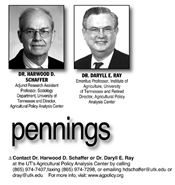|
CDC Has Advised Avoiding Seven Words In Budget Requests, Including Evidence-Based And Science-Based

As social scientists who treasure the concept of academic freedom, we were taken aback when we heard that the Centers for Disease Control (CDC) “had banned seven words.” The seven words: entitlement, diversity, vulnerable, transgender, science-based, evidence-based, and fetus.
Upon further examination, it turns out that it is not quite that simple. CDC personnel were not told that they could not use the words. Rather, it appears that they were told to avoid using those words in budget requests that would go through the Trump Administration before being included in the budget document that would be sent to Congress.
Whether the concern was the reaction of the administration, the Congress, or both is unclear, but there certainly was concern on the part of some CDC personnel that the use of these words might result in an additional reduction in funding for an agency the administration has already targeted for budget cuts.
When a situation like that would arise when we were growing up, someone would roll their eyes and say, “That’s no way to run a railroad.” We can’t say it much better than that. It is beyond our imagination that someone is going to run a word-search of a document and then throw the budgetary proposal out because one of those seven words was used too many times. That’s no way to run a railroad.
The issue of massaging wording in budgetary documents for funding proposals – whether they are grant proposals to foundations or governmental budgetary documents – is distinct from the placing of external limits on the wording of scientific documents whether they are produced by academic scientists or scientists at government agencies like the CDC.
The first, while not desirable, is tolerable; the second is unacceptable. Funding organizations, whether they be foundations or government agencies, have their own particular interests and preferences and if one wants to obtain a grant, one has appeal to those interests while maintaining one’s personal integrity. We do, however, think it is important for public agencies to be more broadly focused than private foundations.
But once the funding is obtained, the researcher is responsible for work that is done and the wording that is used to communicate research results.
We would like to be able to say that the problem of making some words or concepts unacceptable is uniquely confined to the CDC or at least does not apply to agriculture. But alas, that is not so.
As we have shared the Agricultural Policy Analysis Center/Texas Farmers Union (APAC/TFU) crop supply management proposal for the 2018 Farm Bill, we have been told that the words “crop supply management” are toxic and that as long as Senator Pat Roberts is around the APAC/TFU proposal will not receive consideration by Congress.
We find that interesting given that the industrial sector has the Institute for Supply Management which offers a certification program to individuals allowing them to “complete…a rigorous, globally recognized program that sets the bar in supply management. It means [they will] have the knowledge to contribute to supply organizations across industries, the tools to thrive and the confidence to succeed.” Certainly part of the concept of supply management in this context means that the firms these persons work for will supply no less of the product the market requires at a profitable price and no more as well.
As we noted in last week’s column, we could find no information on the work the USDA might be doing in Puerto Rico to help farmers and rural residents weather the damage to the electrical power grid that has left them without power for over 3 months. As a result, we were unable to give our readers a full picture of the rural development and agricultural situation in Puerto Rico following Hurricane Maria.
Recently, we were reading an article on a piece of legislation and wanted to review the wording of the law. The footnoted reference was for a White House webpage. Upon following the link our computer screen said that the page was no longer available, so we had to go to the Congressional website. In our case, the impact on our work was negligible, but in the case of someone using one of the seven words to find help, there could be negative consequences.
Though the comment may date us: “This is no way to run a railroad.” ∆
DR. HARWOOD D. SCHAFFER: Adjunct Research Assistant Professor, Sociology Department, University of Tennessee and Director, Agricultural Policy Analysis Center
DR. DARYLL E. RAY: Emeritus Professor, Institute of Agriculture, University of Tennessee and Retired Director, Agricultural Policy Analysis Center
|
|